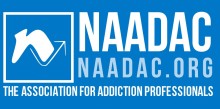Navigating Ethical Boundaries: Decision Making for Peer Support Specialists and Addiction Counselors
This interactive training covers the 2025 updates to the NAADAC Code of Ethics and provides practical tools for ethical decision-making in behavioral health. Using real-world case studies, participants will explore boundary management, dual relationships, ethical self-disclosure, and strategies to prevent burnout and countertransference.
